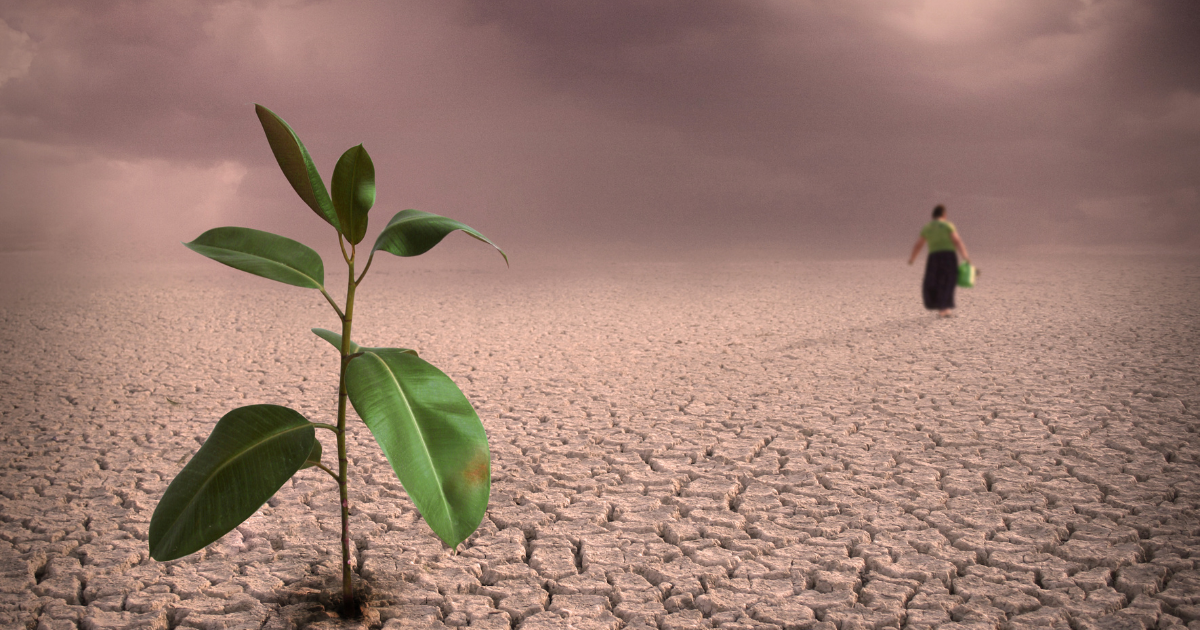Mental Health
Here's How Climate Change is Affecting Everyone's Mental Health

(Photo : ahmetor from Getty Images / Canva)
Climate change is not just about rising temperatures and extreme weather events; it's also about the profound toll it's taking on mental health globally. From farmers plagued by anxiety over dwindling resources to Indigenous communities mourning the loss of their ancestral lands, the psychological effects of climate change are becoming increasingly evident.
At a recent summit organized by the Connecting Climate Minds network, experts from around the world gathered to discuss the detrimental impact of climate change on mental health. Among the key issues highlighted were the escalating rates of anxiety, depression, and hopelessness experienced by individuals and communities worldwide.
Extreme weather events, such as wildfires and droughts, are triggering anxiety and post-traumatic stress disorder (PTSD) among survivors, while air pollution is exacerbating feelings of isolation and despair, particularly among vulnerable populations. Moreover, the compounding effects of multiple disasters are leaving communities psychologically overwhelmed and struggling to recover.
Jhonatan Yuditya Pratama, the youth ambassador from Borneo for Connecting Climate Minds, expressed how deeply his Indigenous community reveres nature as an integral part of their existence. Witnessing the profound impact of climate change on their ancestral lands has engendered a poignant sense of sorrow and bereavement among his community members.
"For us, mental health isn't just about individuals," Pratama said, as per Yale Climate Connections. "It's about the collective well-being of our communities and the land itself. When nature suffers, so do we." He emphasized the interconnectedness between human beings and the environment, asserting that when nature undergoes distress, it reverberates throughout their community's collective psyche.
Indigenous communities, already grappling with intergenerational trauma, are particularly vulnerable to the psychological impacts of climate change, which further intensify feelings of grief and disillusionment about the future. Similarly, farmers face increasing stress and uncertainty as changing weather patterns threaten their livelihoods.
Sacha Wright, the head of research at Force of Nature, a youth-focused organization, and a member of the "lived experience" working group within Connecting Climate Minds, shed light on the plight of small-scale farmers in Kenya. She highlighted their struggle with diminishing harvests, which has led many to resort to tree cutting for charcoal production out of sheer desperation.
Despite feeling compelled by circumstances, some farmers admitted that this exacerbates their already dire situation, fueling feelings of depression, hopelessness, and trauma. The pervasive sentiment among them is one of profound uncertainty, with many feeling at a loss about how to navigate their predicament.
Furthermore, Wright underscored how climate change compounds feelings of hopelessness and powerlessness, particularly among young people. In the Yucatan region, a young individual interviewed by Wright expressed a stark reality where options are limited to either migration or military service in response to environmental challenges like drought.
Similarly, Mercy Njeru, a member of the sub-Saharan Africa working group at Connecting Climate Minds, emphasized how extreme heat frequently leads to school closures in the region, leaving youth feeling ill-prepared and demoralized. The oppressive heat not only impedes their ability to study but also worsens feelings of anxiety and sadness, rendering them unable to function effectively.
"When it's so hot and you're so anxious you can't work, you can't do anything because you're feeling anxious or you're feeling so sad from all the heat around you," she explained.
Addressing these mental health challenges requires a multifaceted approach, including greater awareness, access to mental health services, and community support. From expanding green spaces to reducing inequities and fostering open dialogue about mental health, it's crucial to tailor solutions to meet the diverse needs of affected communities.









Join the Conversation